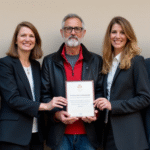Background on the Criminal Organization and Its Leaders
In a coordinated intelligence and law enforcement operation, federal authorities dismantled one of the most significant criminal organizations involved in the illegal theft and distribution of hydrocarbons in central Mexico. The operation resulted in 32 arrests, including key leaders of the group and seizure of thousands of liters of stolen fuel, weapons, and other items.
The criminal cell, led by Cirio Sergio “N” and Luis Miguel “N”, also known as “El Flaco de Oro,” operated in the states of Mexico, Hidalgo, and Querétaro. They drilled into pipelines to steal liquefied petroleum gas (LPG) and gasoline, which was then stored in warehouses and clandestine stations before being distributed through an illegal network of gas stations.
Key Arrests and Seizures
The operation led to the execution of six out of seven main arrest warrants and twelve search warrants. Notable arrests include Cirio Sergio “N” in Ixtlahuaca, Estado de México, who was identified as the coordinator of the criminal network and had connections with local authorities. Diego “N,” the group’s financial operator, was also apprehended in the same operation. Luis Miguel “N,” another key leader, was captured in Tlalpan, Ciudad de México.
Extensive Law Enforcement Efforts
According to the Secretary of Security, Omar García Harfuch, these simultaneous operations took place in the Ciudad de México, Estado de México, Querétaro, Hidalgo, Coahuila, and Tamaulipas, following over six months of intelligence and field investigation by both gabinete and campo teams.
Significant Seizures
During a press conference on June 29, it was reported that major seizures included twelve properties used as operational centers, two clandestine taps, nearly 16 million pesos in cash, 48 vehicles (some luxury and armored), 21 trucks, 14 semi-trailers, eight tanker trucks, high-powered weaponry, and controlled medication.
Additional Cateos and Relevant Information
Other significant cateos occurred in Nopaltepec, Huehuetoca, Ecatepec, and Jilotepec, where logistical operators like Aurelio “N” and Israel “N” were captured. These individuals not only coordinated the transport of hydrocarbons but also fabricated false documentation to conceal their origins.
In Saltillo, Coahuila, nearly two million liters of fuel were recovered from a property used to store trucks and containers. In March, a ship carrying ten million liters of stolen fuel was seized in the port of Tampico, Tamaulipas, triggering a second phase of investigation.
Legal Implications and Future Actions
The Attorney General, Alejandro Gertz Manero, emphasized that this was a high-impact operation with simultaneous coverage in multiple entities. He highlighted that the group would face charges not only for fuel theft but also for organized crime, one of the most serious offenses under Mexico’s legal system.
“These types of operations demonstrate how inter-institutional coordination, intelligence work, and current legal reforms are yielding results. We will proceed with the extinction of dominion over the seized assets,” Gertz Manero stated.
Investment in Colima’s Infrastructure and Water Programs
President Claudia Sheinbaum announced an investment of approximately 2,100 million pesos in programs aimed at improving water supply in Colima. During a weekend visit, she also expressed her intention to promote efficient water use for farmers through the Agua para Colima program.
In terms of infrastructure, Jesús Antonio Esteva Medina, the Secretary of Infrastructure, Communications, and Transportation, reported that Colima would receive 2,000 million pesos worth of projects by 2030. Of this amount, 517 million pesos will be invested in 2025 for the construction of four bridges.






